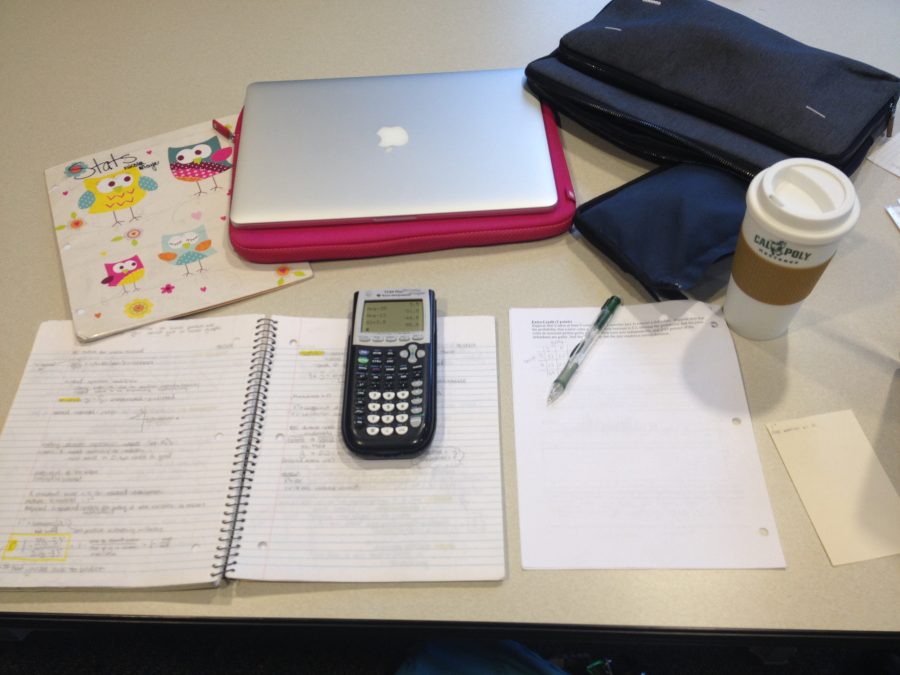With finals coming up next week, here are some tips to do well!
Nicola Mayer | Staff Reporter
Photo by Nicola Mayer
As a senior, I’ve taken my fair share of finals. I’ve figured out some techniques that work and also learned the hard way what doesn’t. I know the most unhelpful thing to say to someone going into finals is “oh don’t worry, finals aren’t that bad, you’ll be fine,” so here are some actual suggestions:
1. Color code
Highlighters just became your new best friend. One of the most useful tips I’ve found when making study guides is to color code by topic, or at least highlight the main terms and ideas. For example, if on your study guide, you make the first unit blue and the second green, you may get to the final, see a term, not know the definition, but remember what color it was written in on the study guide. Knowing the color will get you a lot closer to remembering the definition, since you will may be able to figure out what topic the term comes from. Even if this doesn’t happen to you, a colorful study guide is much more visually appealing and will make studying a little less painful!
2. Get a buddy
As a freshman I wish I understood how valuable studying with someone else is. If you simply make a study guide and read over it, it’s very possible that you won’t actually retain the information. Moreover, it’s likely that you will think you understand it, but as soon as the test is in front of you, you won’t know what to do. Studying with a partner forces you to actually say all the facts and ideas out loud, which will help you understand what you know and what you don’t. Talking out loud will also force you to better articulate your ideas, giving you a better grasp of the subject.
3. Take a break
There’s no way someone can sit in their room and study for 5 straight hours. If you don’t take breaks every once in a while, every individual topic you spent so long studying for will start to flow into one mess of an idea. Also it will be harder to differentiate between two different ideas when all you have to look back on is a huge chunk of time.
4. Space it out
While breaks are very important, it’s also crucial to give each subject multiple days to be absorbed. It won’t be as effective to study history one day, science the next, math the next and so on. If you give each topic some time per day, you will have time to process the information. Each subject will also be more clear to you because you won’t be forcing 200 years of history on yourself at once, you can take the subject bit by bit and master the information more effectively.
5. Re-do assessments
Your past tests and quizzes are some of the most useful resources you have. Those past assessments are in the format your teacher will use for the final, so looking back at them will help figure out what ideas the teacher wants specific details on, and what ideas only have to be understood on the surface. Also you may be surprised that, however simple a question is, if you did the problem in September, the idea may be a little fuzzy. The best way to review it will be to actually re-do the question instead of just looking over it and trying to make sense of what you did.
6. Outlines/ hierarchies
Looking at a full page of text is overwhelming to say the least. By sorting all your information into an outline, your study guide will be much easier to process, and will make more sense. Outlines will also help you understand what topics are the most important and what terms are just subcategories. Physically putting certain ideas underneath others will reinforce what is most important.
Don’t over stress, and get lots of sleep! Good luck!








